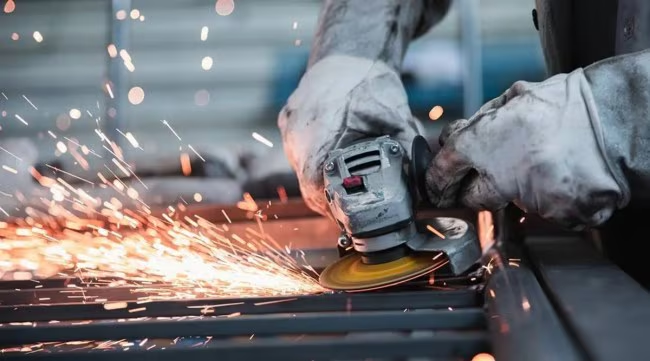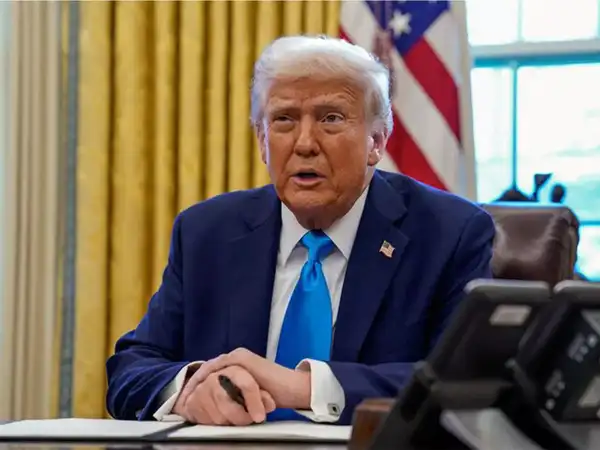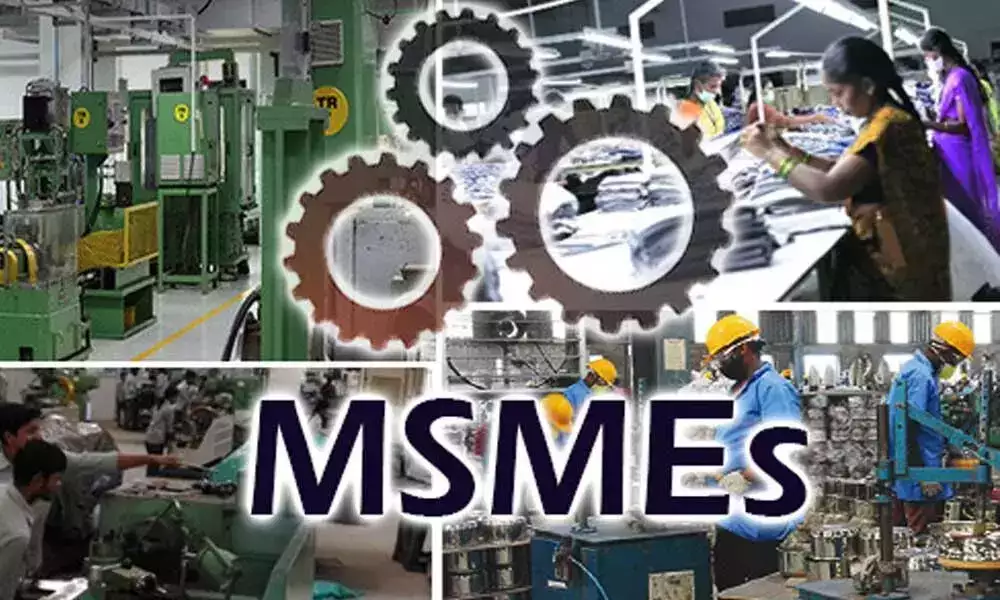Hey, like this? Why not share it with a buddy?

With greater emphasis on collaboration between humans and intelligent machines, workers need to be proficient in emerging technologies like artificial intelligence, robotics, data analytics, cybersecurity and the Internet of Things. We need to position ourselves as a global hub of brainpower, skills, world-class platforms and products; only then will we be able to accelerate the vision of Viksit Bharat 2047.
Written by Abhay Jere:
The Modi Government is undoubtedly taking all necessary measures to minimise the impact of US President Donald Trump’s 50% tariffs. However, the most effective way to address it in the long term is by embracing the “Vocal for Local” approach and accelerating the journey towards building an “Atmanirbhar Bharat”. This approach will not only safeguard our industrial landscape and trade but will also make us future-ready. To ensure the success of the “Vocal for Local” philosophy, our industries will have to produce world-class products and technologies for which they will have to continuously innovate to ensure best-in-class quality is offered at an affordable price. This can be only achieved, if we can successfully build an ecosystem where innovation and design are driven entirely in India, by Indians, yet aimed at serving the entire world. This transformation, however, will depend on how efficiently we can make our workforce ready for handling the challenges of “Industry 5.0”— the next evolutionary leap beyond Industry 4.0 — which reimagines technology not as a replacement for humans, but as a partner, placing people back at the heart of industrial innovation.
Industry 4.0 started the era of digital transformation, where automation and optimization revolutionized manufacturing. However, Industry 5.0 takes a different approach and primarily focuses on harmonizing advanced technologies with human creativity and values. Unlike Industry 4.0, which emphasized smart systems and automation, Industry 5.0 brings humans back to the center of industrial processes, promoting collaboration between people and intelligent machines like AI, robots and digital twins. It prioritizes not just efficiency but also sustainability, resilience and human well-being, aiming to create a more agile, inclusive and purpose-driven industrial future. Hence, to build an Industry 5.0-ready workforce, considerable tweaking needs to happen in our current approach and undoubtedly, we are taking steps in that direction. Governments, educational institutions and industries need to work together in close collaboration to promote interdisciplinary curricula and learning and support lifelong skill development to meet evolving demands. We need to strategically focus on blending advanced technological skills with essential human-centric competencies.
As Industry 5.0 emphasizes collaboration between humans and intelligent machines, workers need to be proficient in emerging technologies like artificial intelligence, robotics, data analytics, cybersecurity and the Internet of Things (IoT). At the same time, soft skills such as creativity, emotional intelligence, critical thinking and adaptability are equally important to complement automated systems and ensure ethical, user-centric outcomes. We need to create pathways that blend technical knowledge with human-centric skills, ensuring the next generation is equipped to lead in this new paradigm. There is a need to have a clear Industry 5.0 national roadmap to guide the transformation strategically and sustainably. Identifying the prospective gaps and formulating supportive policies to upskill the youth is required. It is also essential to further strengthen our innovation clusters across sectors and regions, with a special focus on Tier 2 and 3 States and cities. These areas hold immense potential to become the next hubs of industrial growth, as they are rich in skilled youth, traditional industries and grassroots innovations that can drive inclusive and sustainable development.
At the All-India Council for Technical Education (AICTE), we have now launched several forward-looking initiatives to build a workforce that aligns with the goals of Industry 5.0. Our push for integrating AI into curricula by declaring 2025 as the “Year of AI” reflects our commitment to preparing over 40 million students for the future of work, where human-machine collaboration, ethical AI use and sustainability will be central. Initiatives like the QIP-PG Certification and ATAL Faculty Development Programs equip educators with skills in emerging technologies such as artificial intelligence, robotics and smart manufacturing, helping them train students for future-ready roles. Further, AICTE aggressively promotes innovation and entrepreneurship through its various other initiatives like Hackathons, Institution’s Innovation Council (IICs), KAPILA Startup Policy, Productization Fellowship, Industrial Fellowship, etc. encouraging students to think beyond conventional employment and create tech-driven innovative solutions. Industry 5.0 is currently in the early adoption stage globally; although it’s not yet mainstream, it is fast gaining momentum. Based on current trends, Industry 5.0 is expected to become mainstream by 2030, though the pace will vary by country, industry and sector. If we wish to ensure that India and Indians are at the center-stage of Industry 5.0 revolution, then we need to be focused on building a workforce that is ready to handle the challenges of Industry 5.0.
The writer is Chief Innovation Officer, Ministry of Education’s Innovation Cell (MIC), Government of India.
Source : https://indianexpress.com/article/opinion/columns/industry-5-0-is-the-next-big-leap-for-india-10216047/
Related Posts
SEARCH SME E-News
RECENT POST
Categories
- Achievements
- Banking & Finance
- Branding & Marketing
- Business Ethics & Culture
- Business talk
- Business Tycoons
- Capital Market
- Corporate Story
- Davos
- Economy
- Emerging Market
- Entrepreneurial Leadership Dialogue
- events
- Exports
- Grievances
- Growth
- Impact on Business
- Import
- India Growth Story
- Industry
- Innovation and Invention
- Innovative Ideas
- International Affairs
- International Trade
- jobs career
- Manufacturing
- Meeting
- MSME
- Others
- Packaging
- Pharma
- Policies & Schemes
- Regulatory Change
- Schemes
- Skill Development
- SME Talks
- Start-up
- Swot Analysis
- Tax
- Technology & Research
- Textiles
- Travel
- Uncategorized
- Viksit Bharat 2047- Strategies, Contribution, Initiatives and Efforts
- Women Entrepreneurs
- World Economic Forum










